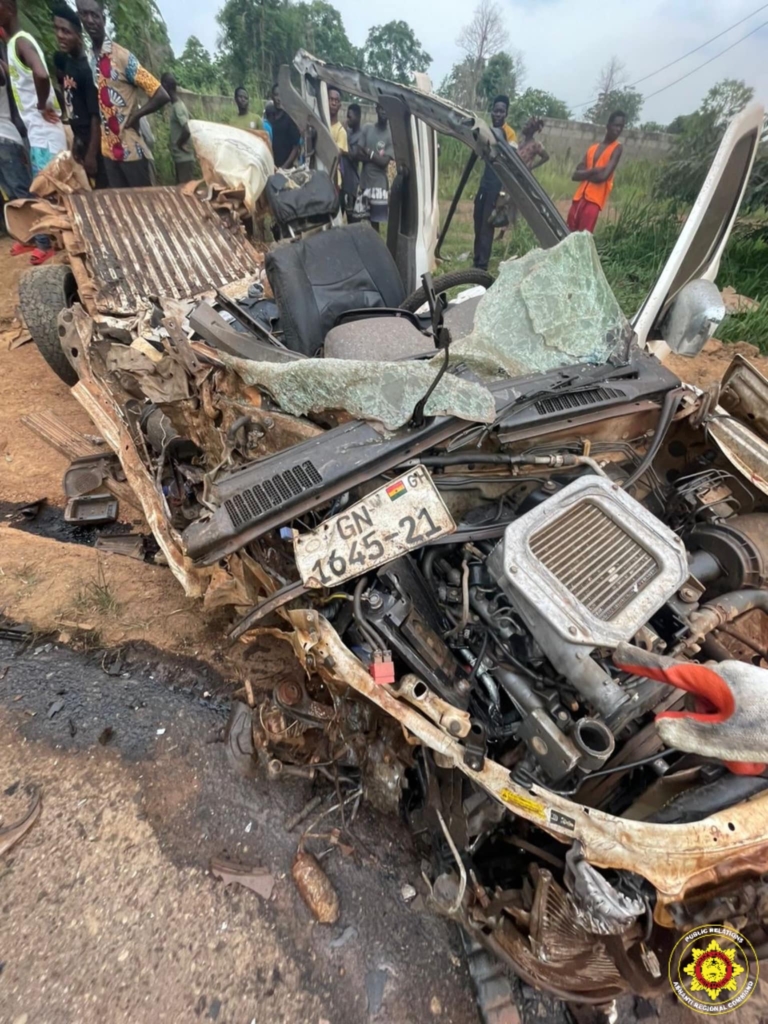
Government justifies ban on imported ‘accident and over 10-year old cars’

Government has justified the decision to ban the importation of salvaged vehicles, also known as accident cars, as well as second-hand vehicles of more than 10 years old.
The proposal is part of the Customs Amendment Bill, 2020, which was passed on Tuesday, March 3, 2020, at the second reading stage in Parliament.
The Bill will be fully passed after the amendments are debated as the government has predicted an estimated revenue loss of GHS802 million over the next three years after the review of the policy.
This is, however, expected to be partially offset by the additional revenue from duties on vehicles not covered by the programme, according to the joint report of the Joint Committee on Finance and Trade, Industry and Tourism.
Information Minister, Kojo Oppong Nkrumah has defended government’s decision to impose the ban.
He said it will among other things make roads in the country safe and make the acquisition of cars affordable.
“What we want to do is to make cars in Ghana very cheap so the person who is tempted to bring in an over-aged vehicle because it is cheaper never minding the fact that it leads to a lot of emissions or someone who will buy a condemned vehicle and assemble can now buy one of the new cheap vehicles manufactured in Ghana. How do we do that? In the investment plan that we will bring and approve, we will negotiate with them [assembly plants] on the sale parameters and prices so that we ensure that we are not pricing out the Ghanaian who wanted to use condemned vehicles which are not safe.”
“Those who are dealers in condemned and over-aged vehicles will again through this investment policy get the opportunity to engage these manufacturers to find ways of on-boarding them to become the new dealers of these vehicles. So in the end, we are able to develop a local market for cars manufactured here in Ghana, create more jobs and income and bring more safety on our roads,” he added.
Unfair ban – Car dealers
Meanwhile, the Automobile Dealers Union Ghana (ADUG) has described the move as unfortunate claiming that the decision is unfair.
“If the car’s fender, bonnet, boot, or other part is broken which somebody can buy and import into the country, I don’t think that those ones should be banned. But the ones that cannot be driven at all, a vehicle that has been damaged or caught by fire or the body is totally condemned, nobody will even invest their money in and buy them to import them into this country. So if you go on to say that there is a broken part and for that matter, those things are not going to be allowed, then I think that it’s rather unfortunate.”
“We have a lot of cars that are even older, even more than 40 to 50 years old, and they are still allowed to be driven on our roads. What are you going to do with those ones but you say you are going to ban a car that has just a few parts broken,” the Secretary of the Union, Clifford Ansu stated on Eyewitness News.
Analysis
Data available from the Ghana Revenue Authority (GRA), Customs Division, indicates that between 2005 and 2016, more than one million vehicles were imported into the country; representing an average of 100,000 cars per year.
Out of this figure, 80 percent were second-hand vehicles.
According to some quarters the trend needs to be reversed to allow for the development, nurturing and flourishing of a competitive automotive industry in Ghana.
Currently, there are penalties for over-aged cars ranging between 5% and 100% of the total cost, insurance and freight of an imported car, between 10 years, and those over 35 years at the country’s ports.
Automobile giants like VW, Toyota, Renault and Nissan, have all expressed interest to set up assembly plants in Ghana, aside from local car manufacturer, Kantanka Automobile Company Limited, which is seeking government’s support to expand its production for the local market.
Source: citifmonline.com






